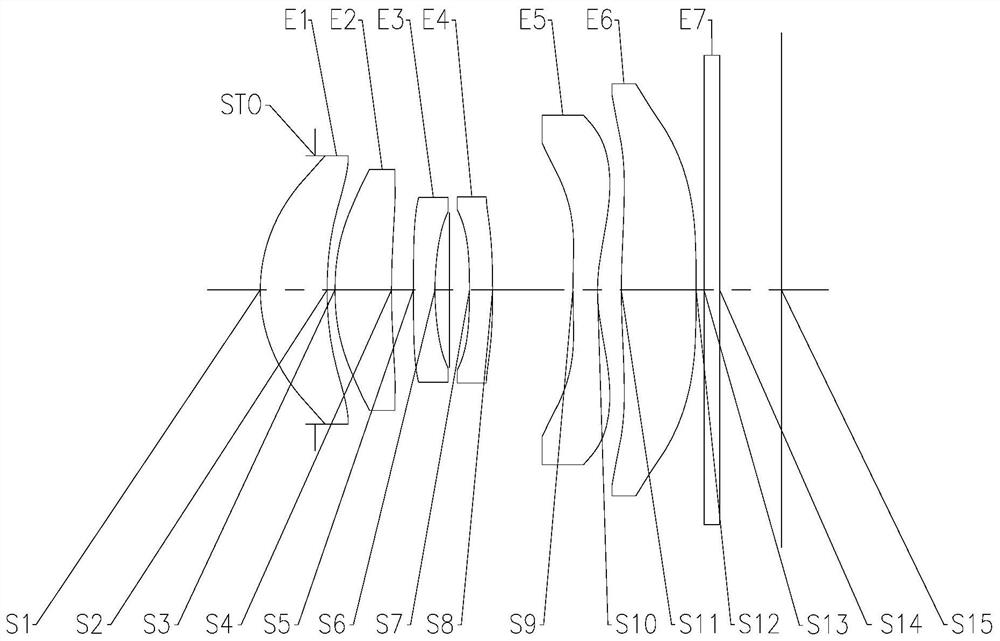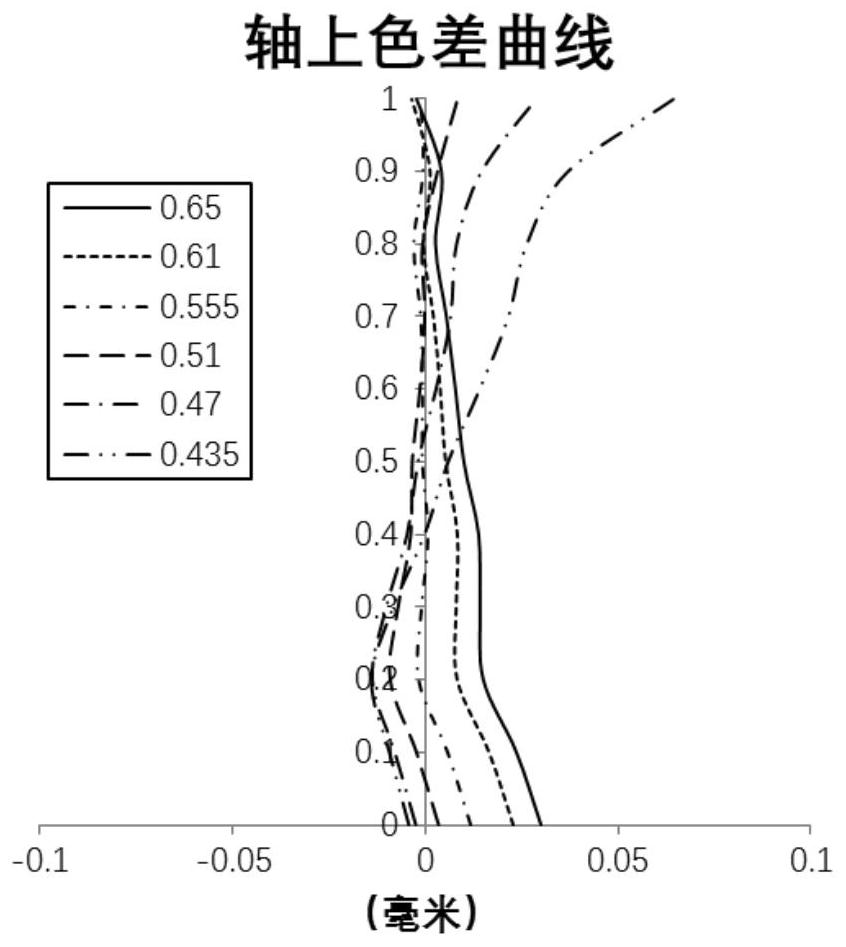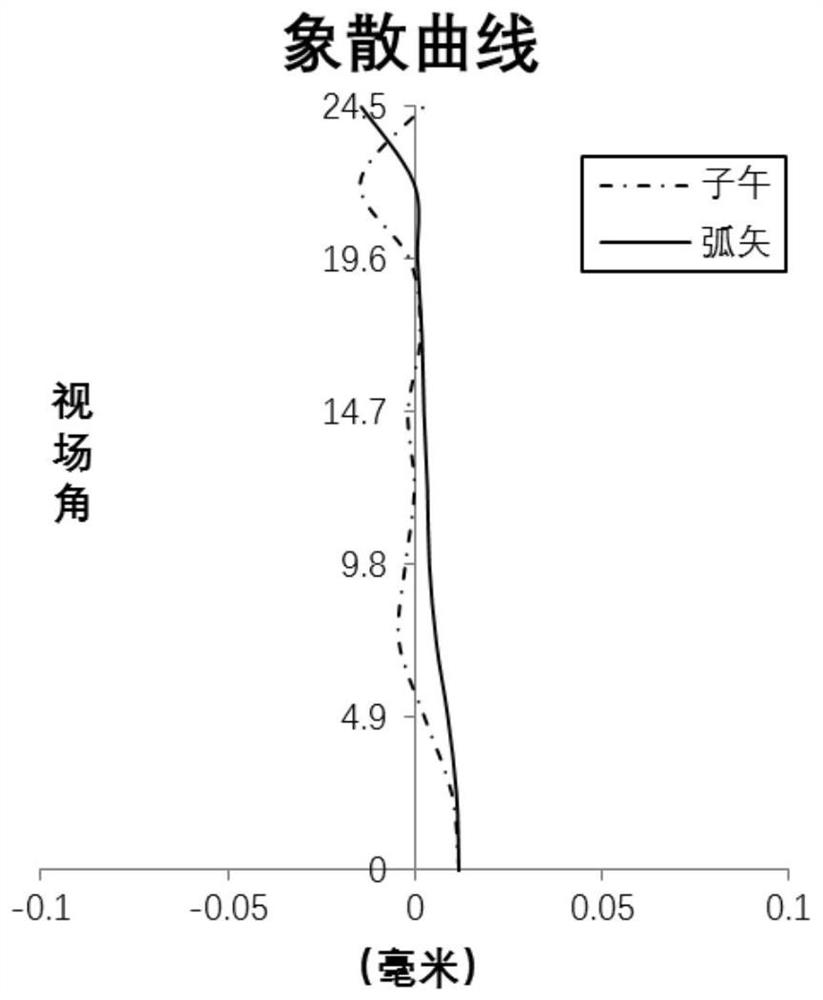Camera lens
A camera lens and lens technology, applied in the field of camera lenses, can solve the problem that the camera lens cannot meet the needs of users, and achieve the effects of miniaturized imaging quality, optimized optical parameters, and good imaging quality
- Summary
- Abstract
- Description
- Claims
- Application Information
AI Technical Summary
Problems solved by technology
Method used
Image
Examples
Embodiment 1
[0082] Refer to the following Figure 1 to Figure 2D An imaging lens according to Embodiment 1 of the present application will be described. figure 1 A schematic structural diagram of an imaging lens according to Embodiment 1 of the present application is shown.
[0083] Such as figure 1 As shown, the imaging lens includes in sequence from the object side to the image side: an aperture stop STO, a first lens E1, a second lens E2, a third lens E3, a vignetting stop ST, a fourth lens E4, and a fifth lens E5 , the sixth lens E6, the filter E7 and the imaging surface S15.
[0084] The first lens E1 has positive refractive power, its object side S1 is convex, and its image side S2 is concave. The second lens E2 has positive refractive power, its object side S3 is convex, and its image side S4 is concave. The third lens E3 has negative refractive power, its object side S5 is convex, and its image side S6 is concave. The fourth lens E4 has negative refractive power, its object s...
Embodiment 2
[0099] Refer to the following Figure 3 to Figure 4D An imaging lens according to Embodiment 2 of the present application will be described. In this embodiment and the following embodiments, for the sake of brevity, descriptions similar to those in Embodiment 1 will be omitted. image 3 A schematic structural diagram of an imaging lens according to Embodiment 2 of the present application is shown.
[0100] Such as image 3 As shown, the imaging lens includes in sequence from the object side to the image side: an aperture stop STO, a first lens E1, a second lens E2, a third lens E3, a vignetting stop ST, a fourth lens E4, and a fifth lens E5 , the sixth lens E6, the filter E7 and the imaging surface S15.
[0101] The first lens E1 has positive refractive power, its object side S1 is convex, and its image side S2 is concave. The second lens E2 has positive refractive power, its object side S3 is convex, and its image side S4 is concave. The third lens E3 has negative refrac...
Embodiment 3
[0114] Refer to the following Figure 5 to Figure 6D An imaging lens according to Embodiment 3 of the present application is described. Figure 5 A schematic structural diagram of an imaging lens according to Embodiment 3 of the present application is shown.
[0115] Such as Figure 5 As shown, the imaging lens includes in sequence from the object side to the image side: an aperture stop STO, a first lens E1, a second lens E2, a third lens E3, a vignetting stop ST, a fourth lens E4, and a fifth lens E5 , the sixth lens E6, the filter E7 and the imaging surface S15.
[0116] The first lens E1 has positive refractive power, its object side S1 is convex, and its image side S2 is concave. The second lens E2 has positive refractive power, its object side S3 is convex, and its image side S4 is concave. The third lens E3 has negative refractive power, its object side S5 is concave, and its image side S6 is concave. The fourth lens E4 has negative refractive power, its object sid...
PUM
| Property | Measurement | Unit |
|---|---|---|
| Refractive index | aaaaa | aaaaa |
Abstract
Description
Claims
Application Information
 Login to View More
Login to View More - R&D
- Intellectual Property
- Life Sciences
- Materials
- Tech Scout
- Unparalleled Data Quality
- Higher Quality Content
- 60% Fewer Hallucinations
Browse by: Latest US Patents, China's latest patents, Technical Efficacy Thesaurus, Application Domain, Technology Topic, Popular Technical Reports.
© 2025 PatSnap. All rights reserved.Legal|Privacy policy|Modern Slavery Act Transparency Statement|Sitemap|About US| Contact US: help@patsnap.com



